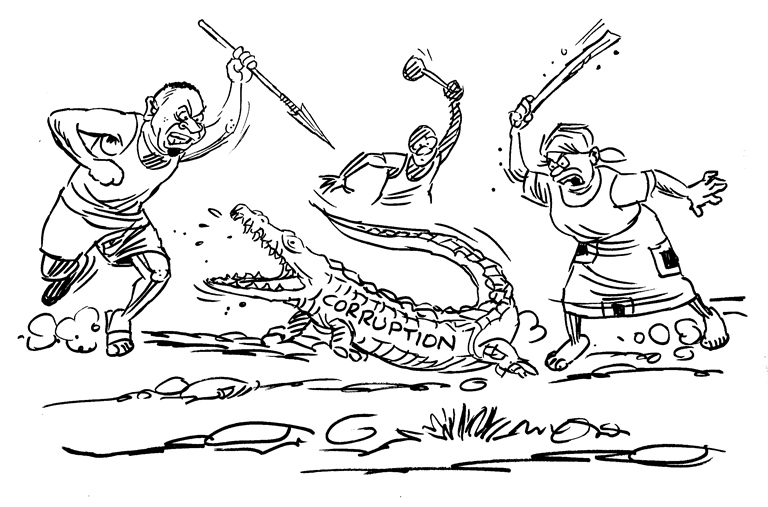Africa celebrates 20 years of fighting corruption on July 11
Since July 2003, the African Union (AU) has celebrated the adoption of the AU Convention on Preventing and Combating Corruption (AUCPCC) on July 11 every year. The AUCPCC was adopted in response to the ever-growing and widespread corruption on the African continent. The convention outlines what African States need to do concerning matters of prevention, criminalisation, international cooperation, and asset recovery. 48 States, including Malawi, have ratified the convention.
20 years have now passed since the adoption of the convention and as directed by the AU Advisory Board Against Corruption, the continent will observe the day by a series of activities under the theme “AUCPCC, 20 Years after: Achievements and Prospects”. With this theme, State Parties are called upon to reflect on what has been achieved in the fight against corruption over the past 20 years and to focus on what can be done in the next 20 years ahead.
Reports have consistently shown that both prevalence and effects of corruption are the worst on the African continent and can be attributed to the ever recurring social, economic and political instability in many African countries, a situation that puts the people of Africa among the most underprivileged globally. Corruption has been the major suspect in the miscarriage of many democratic processes such as elections across the continent and several countries are yet to resolve and heal from political crises caused by corruption.
Ec o n o m i c a l l y, t h e continent continues to suffer from effects of loss of public resources resulting from fraud in processes of public procurement, allocation of land and issuing of licences to exploit natural resources. Further, although Africa is the only continent that is well endowed with natural resources such as minerals, wild animals and natural forests, there is not much to show in terms of the continent’s economic gains, all on account of corruption.
The question about what has been achieved in fighting corruption in the past 20 years since the adoption of the convention is therefore very important.
As a State Party to the Convention, Malawi can use the occasion to reflect on how as a country we have faired in our journey of fighting cor ruption based on the guidelines of the AU Convention. The country can also reflect on how best to confront and anticipate corruption in the next 20 years!
One important aspect of the Convention is its emphasis on the need for State Parties to respect democratic principles and institutions, such as the respect for rule of law, good governance and human rights. In my view, this means that there is need to expand the scope of anti-corruption efforts beyond the focus on administrative reforms to include more strategies on dealing with political corruption that has serious effects on economic and general welfare of people.
While it is important t h a t a n t i – c o r r u p t ion strategies must deal with petty corruption of NEED happening in small public offices where an officer demands or accepts a bribe with which to complement a meagre salary, huge investments must be made to eradicate the grand cor r u p t ion caused by GREED of powerful people that engage in corruption to sustain patronage politics and expensive lifestyles. We must deal with acts of corruption that aim at altering democratic processes by defying democratic principles and institutions, leading to political instability, social disorder, and poverty.
Presently, Malawi , just like the rest of the continent, faces a bleak economic watershed where serious questions must be asked and answered about how its people must survive the pressing economic challenges. As we face the next 20 years of domesticating the AUCPCC, we must prepare to deal with corruption in an environment where breaking the law may eventually become a standard means of survival, politically or economically or otherwise




